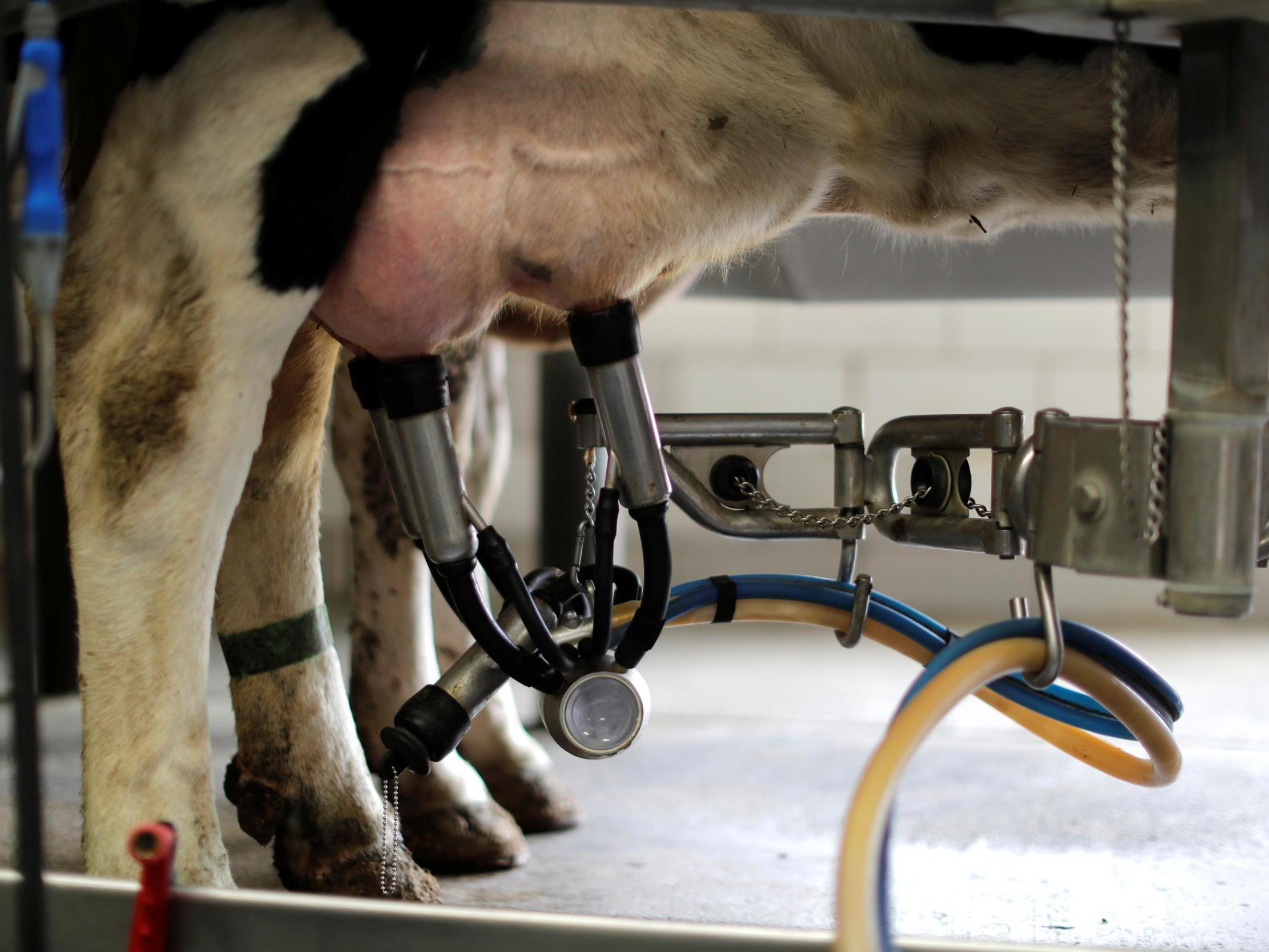World's 13 biggest dairy companies produce nearly same amount of greenhouse gas emissions as entire UK, says report
Study finds firms' emissions of CO2-equivalent gases total 338m tonnes in 2017

Your support helps us to tell the story
From reproductive rights to climate change to Big Tech, The Independent is on the ground when the story is developing. Whether it's investigating the financials of Elon Musk's pro-Trump PAC or producing our latest documentary, 'The A Word', which shines a light on the American women fighting for reproductive rights, we know how important it is to parse out the facts from the messaging.
At such a critical moment in US history, we need reporters on the ground. Your donation allows us to keep sending journalists to speak to both sides of the story.
The Independent is trusted by Americans across the entire political spectrum. And unlike many other quality news outlets, we choose not to lock Americans out of our reporting and analysis with paywalls. We believe quality journalism should be available to everyone, paid for by those who can afford it.
Your support makes all the difference.The 13 largest dairy companies cause almost the same amount of greenhouse gas emissions each year as the whole of the UK, a new report has revealed.
The study, carried out by the Institute for Agriculture and Trade Policy (IATP) in the US and called “Milking the Planet”, found that the level of these businesses’ emissions has risen significantly in recent years.
From 2015 to 2017, there was an 11 per cent increase in the greenhouse gases (GHG) produced by these 13 firms, equivalent to burning 13.6 billion litres of petrol on top of their former rate of pollution.
Some of the companies’ emissions have leapt by as much as 30 per cent over the same two-year period.
The IATP report stresses that there is no public pressure on the dairy industry to change its ways, unlike the scrutiny directed at fossil fuel corporations.
Shefali Sharma, European director at the IATP and the author of the study, said: “Unlike growing public scrutiny on fossil fuel companies, little public pressure exists to hold global meat and dairy corporations accountable for their emissions, even as scientific evidence mounts that our food system is responsible for up to 37% of all global emissions.”
“As governments ratchet up their climate goals, the rise of large-scale dairy and public incentives that further increase corporate dairy power, production and emissions must be stopped,” she added.
According to the research, none of the 13 dairy companies have committed to “a clear and absolute reduction of emissions” from their supply chains or from the cows themselves, which are responsible for 90 per cent of the firms’ pollution.
One of the scientific bodies of the UN Framework Convention on Climate Change (UNFCC) is currently deciding whether to include agricultural GHGs in future climate negotiations.
The report found that the 13 dairies were responsible for the release of 338m tonnes of CO2-equivalent gases into the atmosphere in 2017, only slightly below the 350m emitted annually in the UK.
In response to the IATP’s findings, representatives from the dairy sector defended the industry.
Judith Bryans, president of the International Dairy Federation, and Donald Moore, executive director of the Global Dairy Platform, said in a joint statement: “The dairy sector is committed to producing nutritious foods in environmentally sound and responsible ways.”
Join our commenting forum
Join thought-provoking conversations, follow other Independent readers and see their replies
Comments